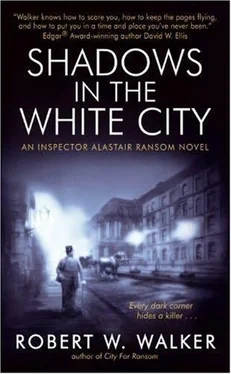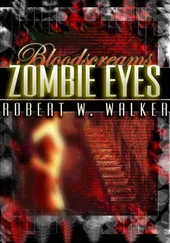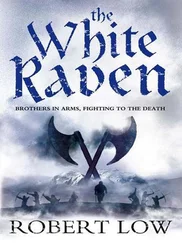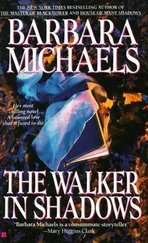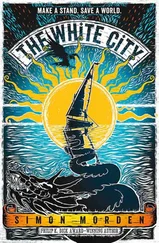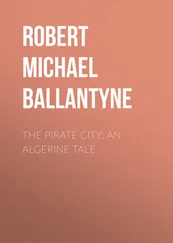Robert Walker - Shadows in the White City
Здесь есть возможность читать онлайн «Robert Walker - Shadows in the White City» весь текст электронной книги совершенно бесплатно (целиком полную версию без сокращений). В некоторых случаях можно слушать аудио, скачать через торрент в формате fb2 и присутствует краткое содержание. Год выпуска: 0101, Издательство: HarperCollins, Жанр: Исторический детектив, на английском языке. Описание произведения, (предисловие) а так же отзывы посетителей доступны на портале библиотеки ЛибКат.
- Название:Shadows in the White City
- Автор:
- Издательство:HarperCollins
- Жанр:
- Год:0101
- ISBN:нет данных
- Рейтинг книги:3 / 5. Голосов: 1
-
Избранное:Добавить в избранное
- Отзывы:
-
Ваша оценка:
- 60
- 1
- 2
- 3
- 4
- 5
Shadows in the White City: краткое содержание, описание и аннотация
Предлагаем к чтению аннотацию, описание, краткое содержание или предисловие (зависит от того, что написал сам автор книги «Shadows in the White City»). Если вы не нашли необходимую информацию о книге — напишите в комментариях, мы постараемся отыскать её.
Shadows in the White City — читать онлайн бесплатно полную книгу (весь текст) целиком
Ниже представлен текст книги, разбитый по страницам. Система сохранения места последней прочитанной страницы, позволяет с удобством читать онлайн бесплатно книгу «Shadows in the White City», без необходимости каждый раз заново искать на чём Вы остановились. Поставьте закладку, и сможете в любой момент перейти на страницу, на которой закончили чтение.
Интервал:
Закладка:
Once finished relating to Philo Keane what Danielle, Robin, Audra, and the other children had imparted, Ransom downed the brandy that Philo had poured for him. Philo explained that the brandy manufacturer had hired him to do some photography for their advertisements of the product, and as partial payment, he had been given a case of the stuff-a suspect brew from another overnight company, this one calling itself Gray Jack Distillery, makers of fine sour mash whiskey right here in Chicago. Philo had been attracted by the terrible labeling job and advertising.
“What is it, like two days old?” asked Ransom after choking. “I predict it’ll win zero ribbons at the fair.”
“I’m unsure how long they’ve aged it, but it’s a modern miracle-mass produced to keep the price down for quick sale.”
“I’m sure, and violating between six and ten laws.”
Philo added, “I don’t expect them to remain in business long.”
“There oughta be a law against vile-tasting liquor,” Ransom said, wincing as he drank up. “So what do you think of my story of the children?”
“Dreadful…disgraceful…. As I recall, it tore William Stead up to see the little beggars about the streets when he was here writing his book.”
“‘Buggars,’ he called ’em. Any news on when that exposé of his will be published, if at all?”
“Who has the guts to publish a work so explosive? The very title itself- If Christ Came to Chicago is-”
“Intended to raise awareness,” finished Ransom. “And he was toying with a subtitle…”
“Really?”
“A Cold Day in Hell.” Alastair laughed. “Said Chicago was colder’n Russian Siberia so far as social consciousness was concerned.”
“I just know he spent a lot of time on the homeless and indigent problems we ‘natives’ ignored here for too long.”
“Still, you’ve skirted my question.”
“Which was?” asked Philo.
Alastair shifted in his seat. “In all of the discussion with the homeless children, what’ve I to show for my case?”
The two men were surrounded by leather, wood, and books, Philo’s phonograph softly playing a Viennese waltz. “I’ve a good mind to make you take me among these street urchins.”
“You?”
“Yes, to photograph them in their natural habitat.”
“Photograph them? What possible good could come of it? Certainly no one I know would pay you for-”
“You miss the point. It’d be for art not money, and maybe…perhaps, if I could get a showing at a gallery downtown, who knows…perhaps we can get Thom Carmichael to cover the gallery showing. Shed light on the problem.”
“I doubt it could happen. Not here.”
“You doubt everything, Rance. Even your own feelings about Jane Francis.”
“Look, now that you’ve heard it, tell me what you think. Do you think there could possibly be a connection between the street myths and the killer?”
Philo shook his head. “That’s right-change the subject.”
“You, sir, changed the subject! Now, back on track, please.”
“I couldn’t say for a certainty either way.”
“I need input on this damned Vanishings thing.” Again, if Dr. Fenger were not one of the conspirators, he’d have told Philo in a heartbeat about Kohler and Senator Chapman’s deal.
Philo finally settled into a chair opposite Ransom. His eyes narrowed, his face pinched, he took a long moment to respond, his hands opening and closing.
Alastair laughed. “Damn it, man, if I were interrogating you, I’d have to assume you are hiding something or guilty over some matter. Why so uncomfortable?”
“I find this so…so strangely coincidental.”
“How so, my friend?”
“A group of us artists in the city have recently discussed this very phenomena. Allandale Wolfson, in fact, has gathered some numbers.”
“The painter?”
“Yes, and as a result, I have formed some opinions, and these street religions you speak of are no surprise to me. Wolfson calls it polygenesis.”
“Poly-genesis as in many a Genesis?” Alastair asked.
“Precisely. Those few people in little cubby-holes inside colleges and universities who study folklore use the term for the simultaneous appearance of vivid, similar tales in far-flung locales.”
Alastair chewed on his lower lip and asked, “Are you referring, Professor Philo, to the similar themes running through all these homeless shelter stories?”
“Professor! That’s funny, Rance. However, it’s not similar but rather identical themes; and, yes, you’re correct.”
“Hmmm…” Ransom scratched at his chin. “The same overarching themes.”
“Each linking the myths of thirty-five homeless children in Cook County facilities alone; facilities operated by the Salvation Army. And we suspect other U.S. and Canadian city shelters also spawn like religions.”
“I’m impressed, professor.”
“These children…they range in age from six to twelve, and when asked what stories, if any, they believe about heaven and God, it’s nothing they’ve learned in formal religion or in any church.”
“So you are chronicling the folklore?”
“Most of these kids don’t write or don’t know how to write, so they are asked to draw pictures for their stories with chalk and slate.”
“I noticed they used the term spirit a lot.”
“It’s a biblical term for revenants, and they seldom to rarely use ‘ghost.’”
“Why is that?”
“Ghosts are for little kids, babies, not tough guys. Ghosts are not real to them. Not like spirits. Spirits are real and dangerous.”
“I see,” replied Alastair, digesting all of this.
“In their lexicon, they always use demon to denote wicked spirits.”
Alastair took a long moment to sip his refill of bad brandy, and to allow these facts to sink in. “Their folklore appears to cast them as comrades-in-arms, regardless of ethnicity.”
Philo stared long into Ransom’s Irish green eyes. “You are a quick student, Inspector, and I am amazed that you somehow made these skittish street kids comfortable enough to share their most guarded, secret stories with you. That is in itself no small feat, remarkable in fact.”
“Thank you, but it was Gabby and Jane who accomplished it.”
“Most people can get nothing from them without a significant bribe.”
“Sure…this is Chicago, and kids learn from adults.”
“For these kids, the secret stories do more than explain the mystifying universe.”
“I see.”
“Do you? They impose meaning upon the world in the telling and retelling of the stories.”
“Story has power, always has,” Ransom mused. “And this gives purpose to their lives.”
“You’ve got it.”
“I do?”
“As you’ve learned, this unusual belief system is cherished by white, black, Ukrainian, Polish, Portuguese, and Latin children, for the homeless youngsters see themselves as outgunned allies of the valiant angels in their battle against shared spiritual adversaries.”
“Not too terribly different from African-American folklore and songs, created right through the horrors of slavery, heh?” suggested Alastair.
“Now you catch on.”
“Bravo to the student.”
Philo grew serious again. “Folktales are the only work of beauty a displaced people can keep,” he explained. “And their power transcends class and race lines, because they address emotional questions.”
“What kind of questions?” asked Ransom.
“Questions like…well…like, why side with good-or even God-when evil-or this Zoroaster, that is, Satan-is winning-”
“-or willing to reward you immediately-this moment?”
“Preeecisely, Detective.”
Читать дальшеИнтервал:
Закладка:
Похожие книги на «Shadows in the White City»
Представляем Вашему вниманию похожие книги на «Shadows in the White City» списком для выбора. Мы отобрали схожую по названию и смыслу литературу в надежде предоставить читателям больше вариантов отыскать новые, интересные, ещё непрочитанные произведения.
Обсуждение, отзывы о книге «Shadows in the White City» и просто собственные мнения читателей. Оставьте ваши комментарии, напишите, что Вы думаете о произведении, его смысле или главных героях. Укажите что конкретно понравилось, а что нет, и почему Вы так считаете.
